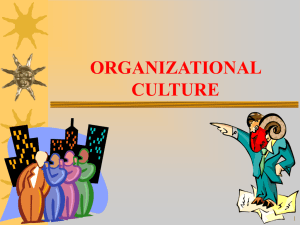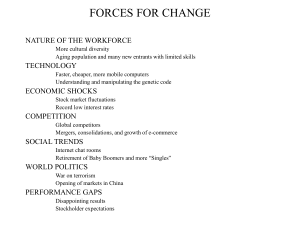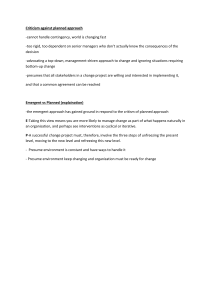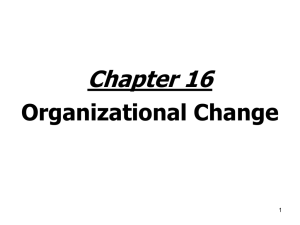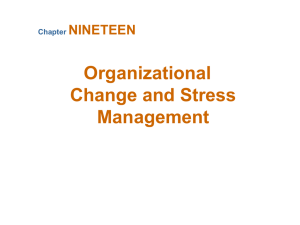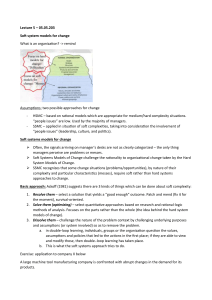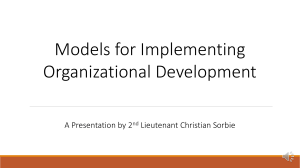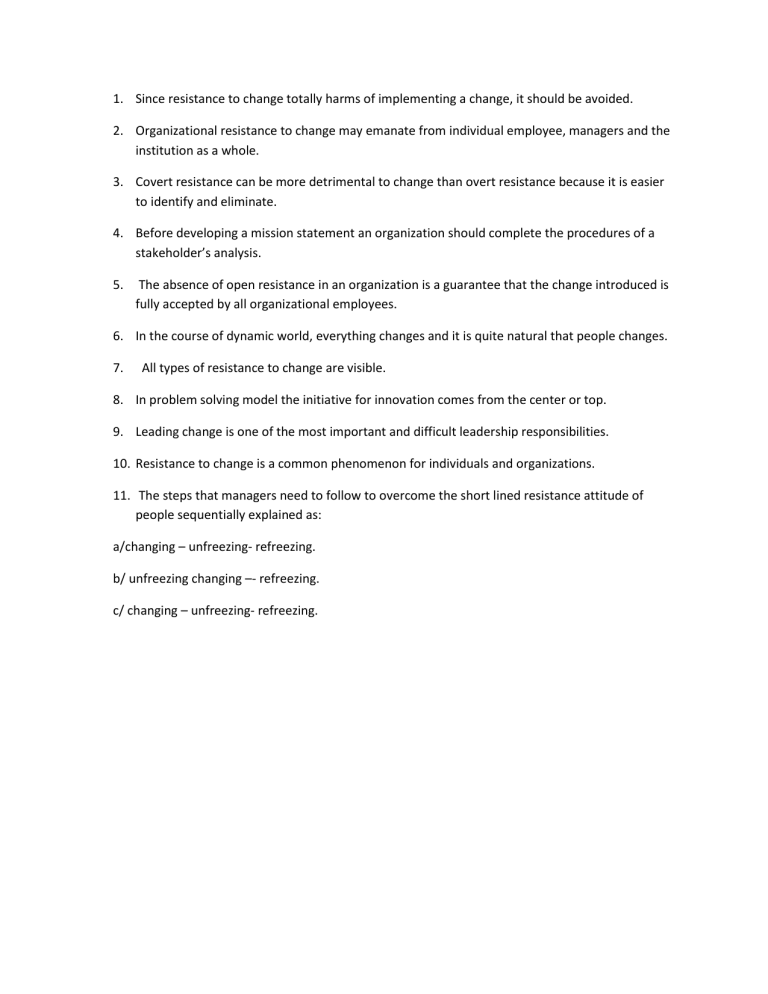
1. Since resistance to change totally harms of implementing a change, it should be avoided. 2. Organizational resistance to change may emanate from individual employee, managers and the institution as a whole. 3. Covert resistance can be more detrimental to change than overt resistance because it is easier to identify and eliminate. 4. Before developing a mission statement an organization should complete the procedures of a stakeholder’s analysis. 5. The absence of open resistance in an organization is a guarantee that the change introduced is fully accepted by all organizational employees. 6. In the course of dynamic world, everything changes and it is quite natural that people changes. 7. All types of resistance to change are visible. 8. In problem solving model the initiative for innovation comes from the center or top. 9. Leading change is one of the most important and difficult leadership responsibilities. 10. Resistance to change is a common phenomenon for individuals and organizations. 11. The steps that managers need to follow to overcome the short lined resistance attitude of people sequentially explained as: a/changing – unfreezing- refreezing. b/ unfreezing changing –- refreezing. c/ changing – unfreezing- refreezing.
